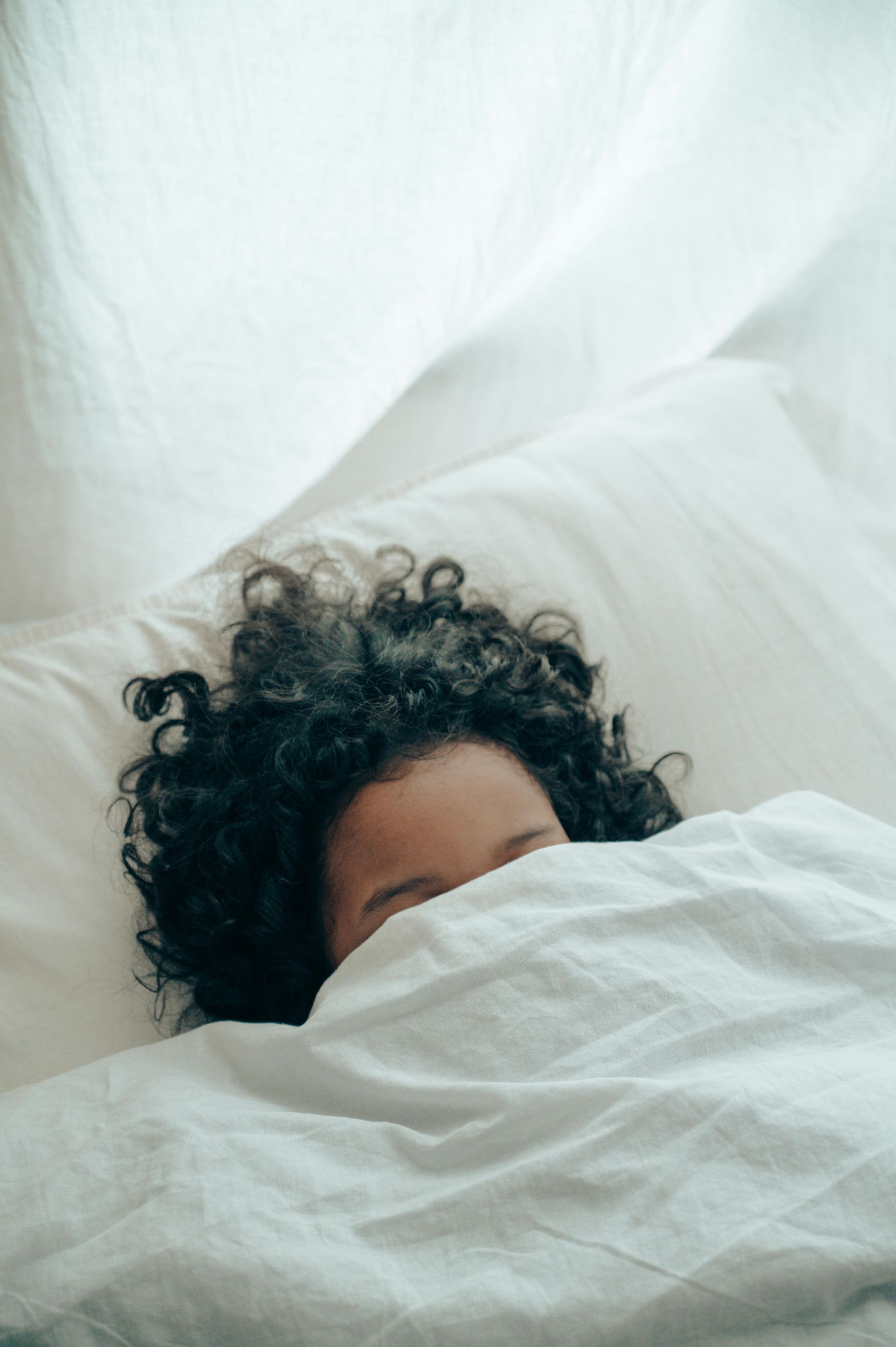How sleep varies with age - Older Adults
Sarah-Louise Waters • January 10, 2021

From babies that sleep most of the day, toddlers that need an afternoon nap, teenagers that sleep like the dead and adults that rarely sleep at all, most of us are aware that the length, depth and quality of our sleep changes dramatically throughout our lives. This blog post is the last in a series aimed at giving you a deeper understanding into what is going on at each age and why, and is about how we sleep in old age.
Both anecdotal and research evidence supports the fact that we are far more likely to experience sleep-related problems later in life, but why is this the case and can we do anything to improve our sleep past the age of retirement?
Sleep issues tend to be more prevalent in older adults for a number of reasons, some directly related to the process of sleeping and the structure of that sleep and others related to influential factors that are more related to ageing than to sleep itself.
In order to gain all of the positive health benefits and feel refreshed after sleep, all humans need to spend at least some of their time asleep in the stage termed deep non-REM. Entry into this level of sleep is determined by the production of powerful brainwaves generated by a specific section of the brain. However, our ability to produce these brainwaves and therefore to enter into and, more importantly, to maintain deep NREM sleep reduces year on year after the age of 25, so that an older adult spends 80-90% less time in deep sleep than a teenager.
This means that older people experience their sleep as being more fragmented than before; they wake up more often overnight and are disturbed more easily by noise, mental activity (intrusive thoughts) or physical sensations such as pain, temperature changes, bladder urgency etc. It also means that older adults spend more time in lighter levels of sleep and may report feeling unrested even if their sleep has been consistent.
Interestingly, this decline in satisfaction with sleep is usually an unconscious effect - we have a tendency to attribute our low mood, physical ailments and decreased energy levels on other health conditions and fail to associate them with poor sleep quality.
It is a common misconception that older adults do not need as much sleep as their younger relatives. In reality, the longer and better quality your sleep is at this age determines not only your longevity but also your quality of life. It is not that sleep is needed less, but that it is just less able to be achieved. As at any other stage in life, not getting enough good quality sleep often results in daytime fatigue and it is not uncommon for older adults to make up for what they have lost overnight with a nap during the day.
In addition, as we progress through life, our internal body clock (circadian rhythm) that signals to us when we should be awake and asleep, shifts slightly earlier, so that we have a tendency to struggle to stay awake earlier and earlier in the evening and then find ourselves awake (but possibly not rested) earlier and earlier in the morning. This shift and the return to biphasic sleeping (sleeping in two phases) is completely natural and is a globally recognised phenomena. It also marks a return to how we sleep as young children, which is interesting to note if you believe that life is a circle.
Add into all of this the other age-related factors that influence sleep, for example, medical conditions and the medications taken for them, stress, hormonal fluctuations, and lifestyle factors such as diet, exercise, smoking and alcohol use, and it is not difficult to understand why sleep issues are more prevalent in older adults.
The last possible influential factor on the inability of older adults to sleep is related to the amount of sleep pressure they build up during the day. I will explain more about sleep pressure in another blog post, but simply put, it works in very much the same way as hunger - steadily increases over time from the last time that you ate/slept and is increased by both physical and mental activity.
There is an argument (albeit a contentious one) that older adults, particularly those in their retirement, are not as physically or mentally active as their younger relatives and are therefore not as “hungry” for sleep. Now I can imagine a few people currently shouting at the screen that they or their retired relatives are just as or even far more active now than they were in earlier life, but these individuals are more likely to be the exception rather than the rule. You may also find that these individuals do not have any issues with their sleep but do let me know if you disagree.
Unfortunately, the instinctive reactions to experiencing increasingly fragmented, un-refreshing sleep can often make the situation worse. Daytime napping (including falling asleep in front of the TV!) may enable us to supplement shorter overnight sleep, but may also cause the body’s natural drive for sleep at night (sleep pressure) to decrease, exacerbating the problem in the long run. Going to bed earlier in an attempt to sleep more will only cause you to spend more time awake in bed, creating a negative mental association between your bed and the stress and worry of not being able to sleep.
Probably the biggest block to sleep that we develop with age is related to the automatic nature of sleep. The transition into sleep is a completely natural process that becomes more difficult the more we think about it (in a similar way to driving a car or dancing). Once we have experienced an issue with our sleep, we can then begin to try too hard and the effort of doing so may well then prevent us from sleeping. In the long-term, if we continue to try and fail to sleep well our self-confidence in our ability to sleep is then also undermined setting up a negative loop in which it is too easy to get caught.
So what can we do to improve our sleep in later life. My first recommendation is to come to terms with the fact that you will never sleep in the same way that you did as a teenager or young adult and to accept that this is not your fault. No one, regardless of age, sleeps well every single night and there will always be some nights that are better than others, but worrying about your sleep will only make matters worse. Try to stick to a routine as much as possible, practice good sleep hygiene and if you must nap during the day, take your nap as early as possible. Lastly, if you are ever in bed and you are not asleep, get up and do something else. Never try to force yourself to sleep.
Additional Reading
Sleep cycles https://www.fromsoultosole.co.uk/sleep-cycles
Sleep pressure https://www.fromsoultosole.co.uk/sleep-pressure
Circadian rhythm https://www.fromsoultosole.co.uk/circadian-rhythm

Why do I wake up still feeling tired? When we give ourselves ample opportunity to sleep and we don’t remember being awake overnight, it can be really frustrating to then wake up feeling as though we’ve not slept or at least that we’re not refreshed by that sleep. But why does that happen? This blog is all about the many reasons why we may not be getting restorative sleep.

Reading is an amazing way of escaping from your own reality. When we become absorbed in a story that is not our own, whether that be via a book or a movie, we put aside our own moods, worries and emotions. The more empathic we are, the more we are able to put ourselves into the shoes of the characters and let go of our own personal narrative. The benefits of doing this before settling down to sleep, especially for us highly-sensitive empaths, are immense. The ease by which we can fall asleep, the depth of that sleep and its length are all governed by how "safe" our brains feel at the time. If we are stressed, currently going though an emotional or practical upheaval, or are generally finding it difficult to switch off from the day, then our brain is going to want to keep us awake in order to continue its processing. Annoying as it is, this is simply your subconscious' way of sifting through data, resolving problems and (hopefully!) finding solutions. While nothing will ever truly be a better option than dealing with whatever is stressing you out in daylight hours, it would be ridiculous to think that there will never be a time that you go to bed with something on your mind, and this is especially true for highly sensitive, empathic individuals. Reading a book (even for a short space of time) can offer you the distraction that you need to put this issue to one-side and drift off. There are however some rules to remember when it comes to pre-sleep reading, particularly with regards to the content of what you read... 1) The topic should be interesting enough to capture your attention and stop you thinking about your worries. A text book may work, but only if you can actually concentrate on what you are reading without your brain wandering off on a tangent. 2) Reading about something you find emotionally disturbing (murder, rape, child abuse etc) will raise your blood pressure and heart rate, both of which are detrimental to sleeping well. 3) Reading a thrilling page-turner may lead you to still being awake at 2am because you just want to finish the next chapter, and the next, and the next (you get the idea!). 4) Picking a favourite book that you've already read can be a great idea - it will give you all the feels and distraction, without the need to continually page-turn as you already know what's coming. 5) If you find reading difficult because you are sight-impaired, dyslexic or have another form of reading difficulty, or simply because reading reminds you of an academic past you would rather forget, listen to an audiobook instead. You're still getting all of the sleep advantages of reading, but without the discomfort. 6) Never read anything related to your work just before bed. Reading should be about distancing yourself from stress, not inviting it in. 7) Be aware that reading on an electronic device means subjecting yourself to additional cues that now is not the right time for sleep (i.e. blue light exposure). Kindles don't smell or feel as good as a proper book either! If you are finding it difficult to fall asleep and would like some further help in the form of some sleep coaching sessions, please click on the button below and I will get back to you as soon as possible.
